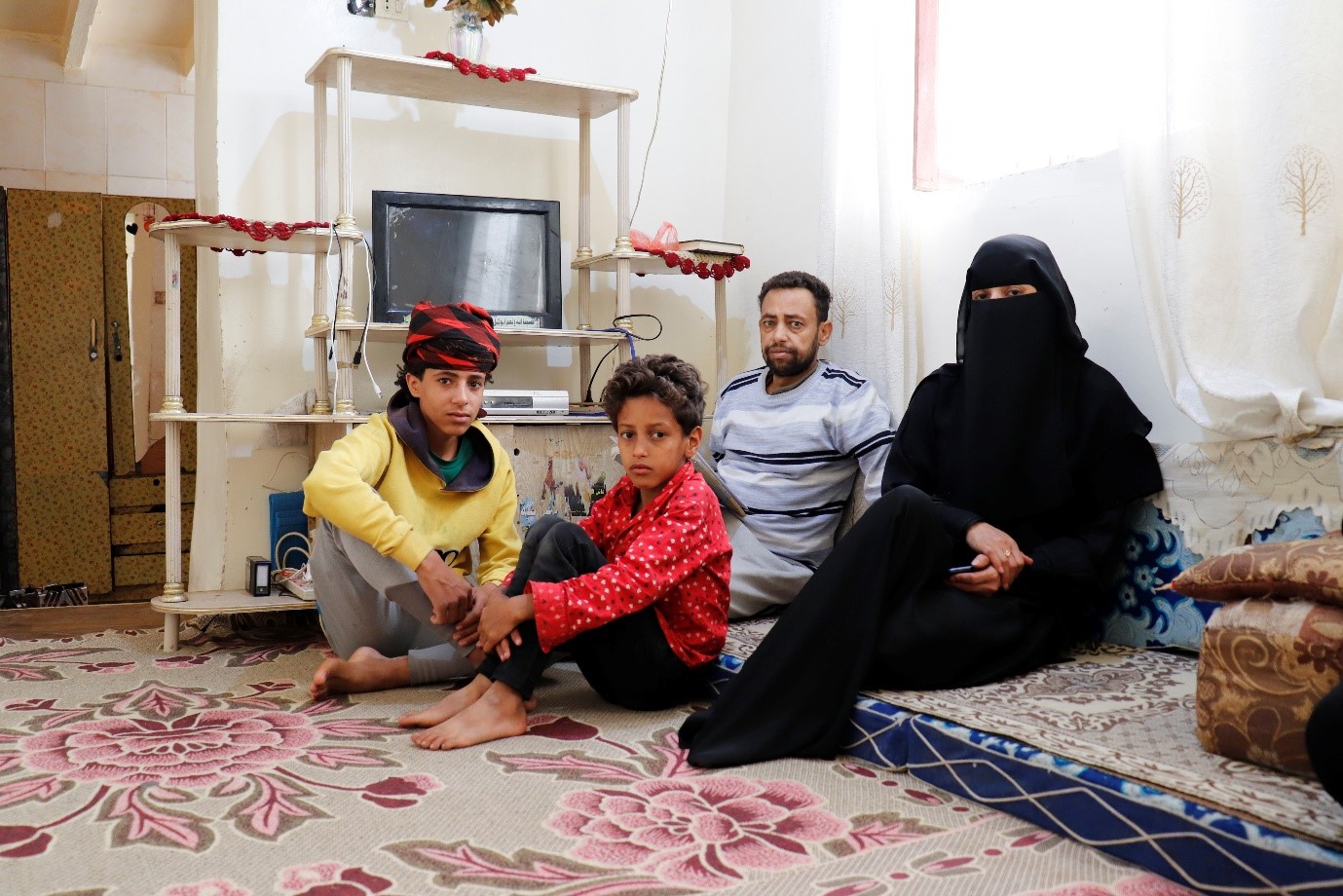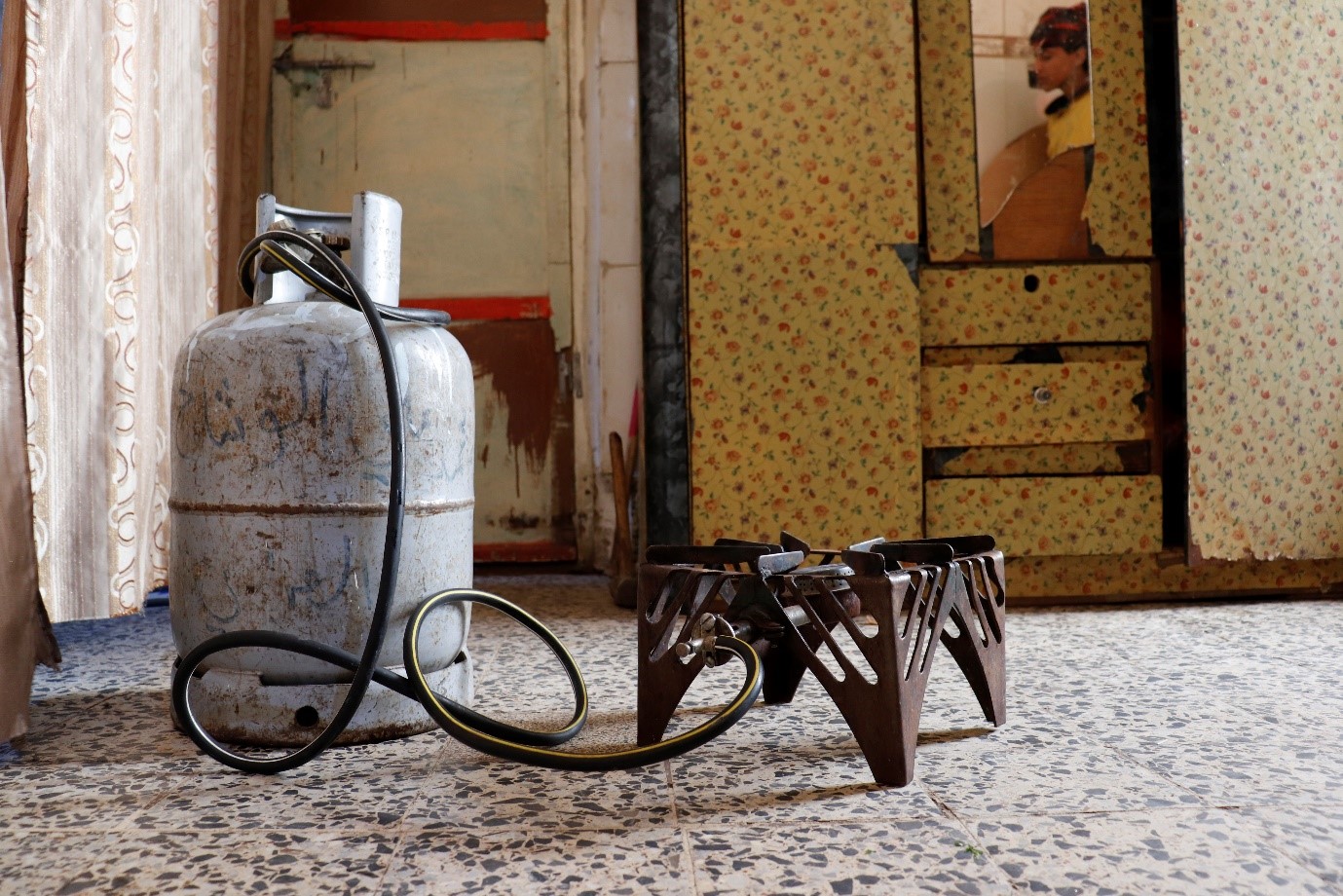“We had to leave our apartment and go back to my father-in-law’s house when they stopped paying salaries,” says Bodoor Ali, a 37-year-old mother of four children. Devastating armed conflict since 2015 has aggravated Yemen’s chronic poverty, creating an economic and humanitarian crisis in what was already the poorest country in the region. Millions of Yemenis have lost their livelihoods because of the conflict, and many businesses have had to close.
“Before the war my husband’s salary was our only income, out of which we used to pay the rent and buy what we needed. Life was good. Then my husband lost his job and we were always worrying about how to provide for the family. On top of these worries, his health became worse, as he has been suffering from a heart problem for a long time.”
Bodoor’s family, like many families in Yemen, had no choice but to depend on the generosity of philanthropists, but this wasn’t enough. She tried to buy medication for her sick husband and now she has debts of over 230,000 Yemeni Riyals. She became desperate to try and provide some more income, but in Yemen’s male-dominated society, her husband and his family did not accept the idea of her working. She tried to convince them again and again but in vain.
“All I was thinking about was to provide a decent life for my family and to give a helping hand rather than receiving help from other people. I used to do some domestic work for other people to earn a bit of money, and now I suffer from a problem with my spinal disc. Carrying heavy water cans on my head has also made the problem worse.”
Women in Yemen are responsible for queuing for hours to fetch water, often having to carry it very long distances on their heads. Boodor and her daughter would go every day to fetch water, until she was referred to a doctor who told her to stop this practice, otherwise she would end up lying in bed unable to move.
Amidst all of this despair, suddenly things changed for Bodoor. “One day I noticed women gathering at my friend’s place,” she says. “Out of curiosity, I decided to go and ask. I was told these women are survivors of gender-based violence and domestic abuse, and they are attending sessions to help improve their lives after the trauma they had suffered.” She asked her friend to include her name in the list.
Bodoor was referred to CARE to be supported by a project funded by the UN Population Fund (UNFPA). After her husband eventually agreed to let her attend, she received trainings in financial skills, life skills and entrepreneurship through a programme called Springboard. “These trainings opened closed doors for me,” she says. “I had never thought of starting my own business. This was a ray of hope.”
Wth a grant she received through the project, Bodoor immediately bought a gas cylinder and a wheelbarrow to make roasted beans in order for her husband to sell them. “Thanks to CARE, I am now able to buy what we and keep my children happy,” she says happily. “My life has significantly improved. I hope I can receive more grants so I can expand my business to rent a decorated shop and hire an employee. I also want my children to receive a proper education, and I dream of having my own house in the future.”



